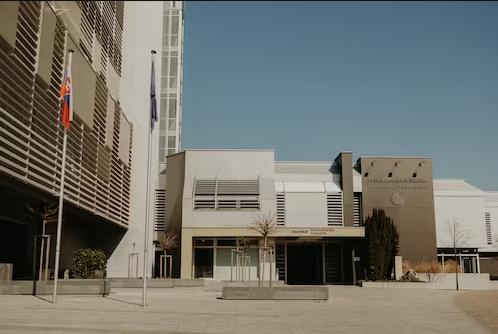The foundation of any society’s progress lies in its education system. A successful education system is a complex interplay of various elements that collectively work to nurture, inspire, and empower learners.
It’s not just about imparting knowledge; it’s about shaping the future. This article delves into the essential components that constitute a successful education system, each playing a pivotal role in crafting an environment conducive to learning and growth.
- Quality Teachers: The Backbone of Education
The cornerstone of any successful education system is its teachers. Quality teachers are not just subject matter experts; they are skilled communicators, motivators, and lifelong learners. Their role extends beyond imparting knowledge; they inspire, challenge, and support students.
Effective teachers adapt to diverse learning styles and student needs, making learning accessible and engaging. They are trained not only in their subject areas but also in educational strategies that foster critical thinking and problem-solving skills.
In a successful education system, teachers receive ongoing professional development to stay abreast of educational research and technological advancements. This continuous learning ensures they remain effective in their teaching methods.
Furthermore, teachers need a supportive work environment that includes fair compensation, manageable class sizes, and access to resources. This environment enables them to focus on their primary role: educating the next generation.
- Higher Education: A Path to Personal and Professional Growth
Pursuing higher education, such as an online master’s in educational leadership, offers profound personal and professional benefits. Firstly, higher education provides an opportunity for individuals to deepen their knowledge in a chosen field, fostering both personal satisfaction and professional expertise.
Advanced degrees, especially in educational leadership, equip individuals with skills in management, policy understanding, and instructional leadership, which are crucial for driving positive changes in educational settings.
Higher education also opens doors to better career opportunities. With an advanced degree, individuals can access higher-paying jobs, leadership roles, and specialized positions. In the context of educational leadership, graduates are prepared to take on roles that influence educational policy, school administration, and curriculum development.
Additionally, higher education enhances critical thinking and problem-solving skills, which are invaluable in any professional setting.
- Inclusive and Equitable Access: Ensuring No Learner is Left Behind
An education system can only be deemed successful if it provides inclusive and equitable access to all learners. This means addressing barriers that prevent students from different socioeconomic, racial, or cultural backgrounds from accessing quality education.
Inclusive education involves adapting teaching methods and curricula to cater to diverse learning needs, including those of students with disabilities.
Equity in education also means providing adequate resources to schools in less privileged areas. This can include funding, access to technology, and quality teaching materials. By ensuring that all students, regardless of their background, have access to quality education, the system lays a foundation for a more just and equitable society.
- Technological Integration: Enhancing Learning Experiences
In today’s rapidly evolving world, integrating technology into education is no longer a luxury but a necessity. Technology can enhance learning experiences by making education more interactive, accessible, and tailored to individual learning styles.
Educational technology tools, such as digital textbooks, online learning platforms, and educational apps, provide students with diverse and engaging learning materials.
Moreover, technology in education extends beyond the classroom. It allows for remote learning, which can be particularly beneficial in times of crisis, such as during a pandemic. Additionally, it prepares students for a digital world, equipping them with the digital literacy skills essential in most modern workplaces.
- Continuous Assessment and Improvement: A Dynamic Approach to Education
A successful education system does not remain static; it continuously assesses and improves its practices. This involves regular evaluation of educational outcomes, teaching methods, and curriculum relevance.
Feedback from students, teachers, and other stakeholders plays a crucial role in this process. Through continuous assessment, the education system can identify areas needing improvement and implement changes accordingly.
Furthermore, an education system committed to improvement embraces innovation. This might include experimenting with new teaching methods, integrating emerging technologies, or revising curricula to reflect current societal needs and future job markets.
A dynamic approach ensures that the education system remains relevant and effective in a changing world.
- Community and Parental Involvement: Strengthening the Education Ecosystem
The involvement of the community and parents is a crucial yet often overlooked component of a successful education system. When parents and community members are actively engaged, it creates a supportive and collaborative environment that enhances educational outcomes.
Parental involvement in a child’s education can range from participation in school events to involvement in homework and school decisions. This engagement fosters an environment where education is not confined to the classroom but is a shared responsibility, valued, and supported by the wider community.
Community involvement also extends to partnerships between schools and local businesses, organizations, and universities. These partnerships can provide resources, real-world experiences, and additional learning opportunities for students.
For instance, local businesses offering internships or project-based learning opportunities bridge the gap between theory and practice, preparing students for the workforce.
Similarly, community service projects can instill a sense of responsibility and civic engagement in students, reinforcing the social aspect of education.
- Curriculum Relevance and Flexibility: Adapting to a Changing World
A successful education system must have a curriculum that is both relevant and flexible. Curriculum relevance means that what is taught in schools should align with current societal needs and future job market trends.
This includes not only traditional academic subjects but also life skills like financial literacy, digital literacy, and environmental awareness. A relevant curriculum prepares students not just for exams but for life beyond school.
Flexibility in the curriculum is equally important. As the world changes rapidly, the education system must be agile enough to adapt. This might mean updating content regularly, introducing new subjects, or allowing for elective courses that cater to diverse interests and talents.
Conclusion
A successful education system is multifaceted, requiring quality teachers, inclusive access, technological integration, and a commitment to continuous improvement.
By focusing on these critical components, an education system can not only impart knowledge but also foster the growth of well-rounded, capable individuals who are prepared to contribute positively to society.







More Stories
The Essence of EV Thermal Management Systems
Basic Fundamentals of Music Theory
How Long Does It Take to Learn Forex Trading and Make Money?